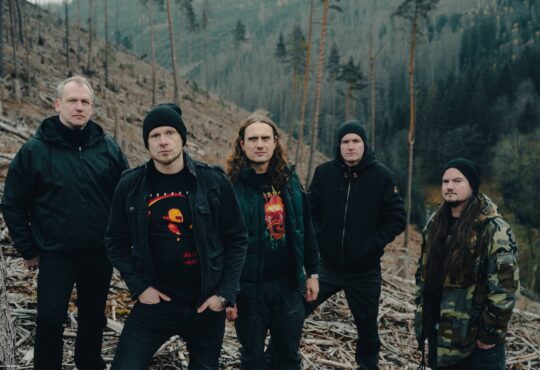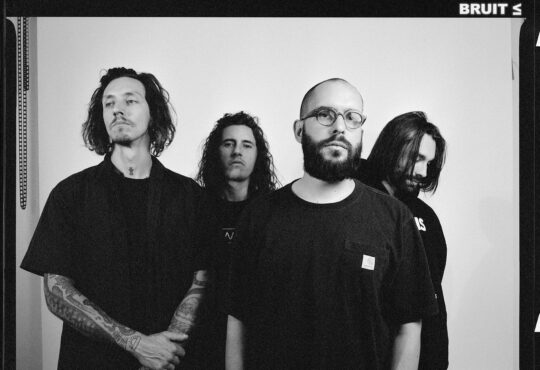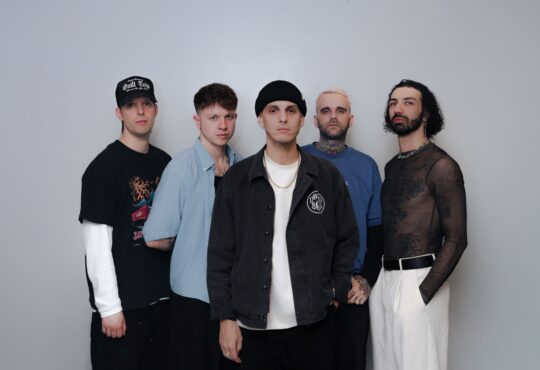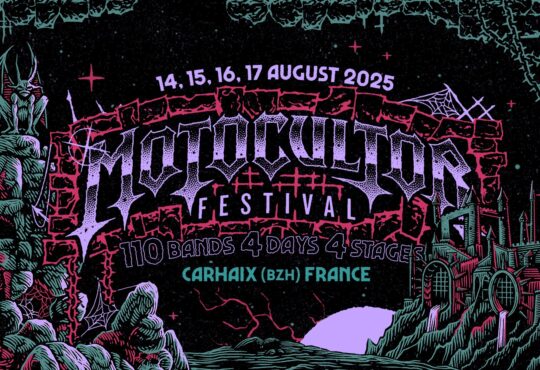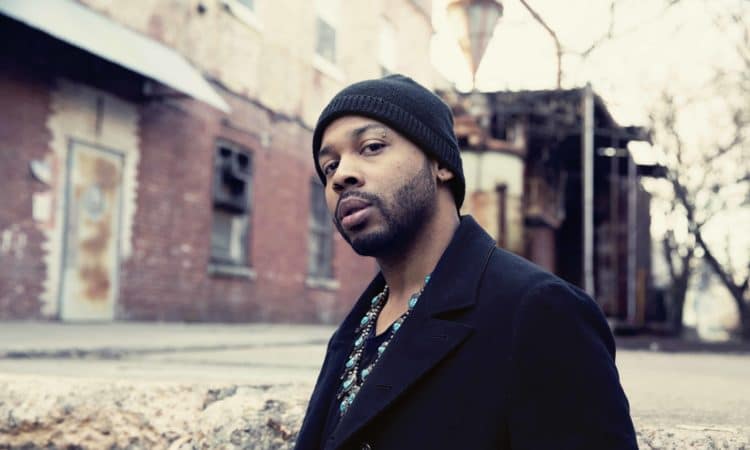
Ayron Jones was in Paris for his first gig in the City Of Lights and RockUrLife was there to go over his music and philosophy of life.
You’re in Paris until Monday for your first gig. Is it like a dream come true?
Ayron Jones: I could dream, for me, it was it’s about putting my head down. And then like, play guitar, and close my eyes and then hopefully, when I when I open up my eyes, I’m somewhere fantabulous and beautiful and fantastic. I think that’s kind of my mentality. So far. Everything is always a surprise for me. Life is always brand new.
What attracted you to guitar in the first place? Was it a way to escape?
Ayron: I played a bunch of instruments. I put the drum kit. I taught myself how to play piano. And then I picked up violin in elementary school or middle school. And after that, I discovered the guitar and my whole life kind of just changed. I was so obsessed, and that obsession is continuous. It’s taken me to these new heights. I don’t know if it was a way to escape so much. I didn’t know there was anything to escape from. How does a kid born in darkness know that there’s light? You just don’t think of it that way. You just feel good when you do it. Sometimes when you follow a good feeling it takes you to nice places.
In your lyrics you’re direct and honest about your childhood and your relationship with your mom, your feelings about abandon. How did you manage to canalize all of that?
Ayron: When I was a kid, I was being raised through the, the war on drugs, which was a big deal in 80’s and 90’s. But really affected families, namely, families of color black families in America. And, and so because of that, I ended up my mom was an addict, and my dad kind of sold drugs and was in gangs and stuff. I didn’t really see much of my mom. She had me at 19 and then left me in the care of my aunt, who would definitely be the care mom. The state decided to put me in the care of my aunt, that was the best option for me. I was basically a child of the state and my aunt was granted the guardianship. On paper, I legally didn’t have parents, I had a guardian and that was the closest thing I was gonna get to a parent growing up. I was the child of the byproduct of the war on drugs and the byproduct of a lot of things that were happening to the black community at that time. And so, a lot of stories I tell especially the older ones are stories like that. When my mom kissed my face and said she’d be right back before she walked away, that was when I discovered lying.
You’re the living proof that you can create from darkness and reach the light.
Ayron: Increasingly beautiful darkness of the most the most beautiful things are created in darkness. Diamonds are created from the deep underground or is no light. Like to most people, things are created in darkness. It’s always been kind of my philosophy to just no matter where you are flow with the energy of life and continue to dream and move forward.
Do you think it’s like an advantage to come into fame at your age?
Ayron: Yeah. I don’t know, it’s hard to answer that question. I think that there’s never a right age for anything. I’m saying age is really subjective. It doesn’t really matter what age you start. It’s about how you finish, I think.
It’s maybe a bit easier to handle success, to have a different perspective.
Ayron: Yeah, for sure. There’s definitely a little more maturity that brings on perspective. In my hometown, I’ve been dealing with fame since I was 26 years old, and my first record came out. And so, my hometown became kind of a testing ground for what was to come. I can honestly say that, now that I’m older, it gets a lot easier to handle those things. I do the best I can. No one can really prepare you for what it’s like to deal with fame or the things that come with that: the women, the drugs, all of it. That stuff is a part of the journey. I’m at the age amount now I can really have a better perspective on that. I’m not always the greatest with it, but I do the best I can. And I suppose in my 20’s, I’m guaranteed to fall flat on my face at some point with it.
It reflects some so in your way of writing. Your take on life is deeper because you experienced things and have more perspective.
Ayron: Yes, definitely. The record was actually a snapshot of the past and bringing people up to speed on who I am. And who I am is a man. The next thing for me is to evolve, just like the sound that I’ve created. My sound was just this eclectic approach to, to rock and R&B and blues and pop and soul and evolve that and continue to try to touch the different bases that rock’n’roll touches. I’m going to try to touch every base I can and try to connect with every genre of rock that I can and the people that come with that.
And it seems that it’s easier now to cross genres.
Ayron: Hip Hop made that happened. Now people are not afraid of exploring and mixing genres. I’m not afraid to do this. Tonight, I’m going to do something. Tomorrow, it’s gonna be RnB. Next day, it’s gonna be reggae.
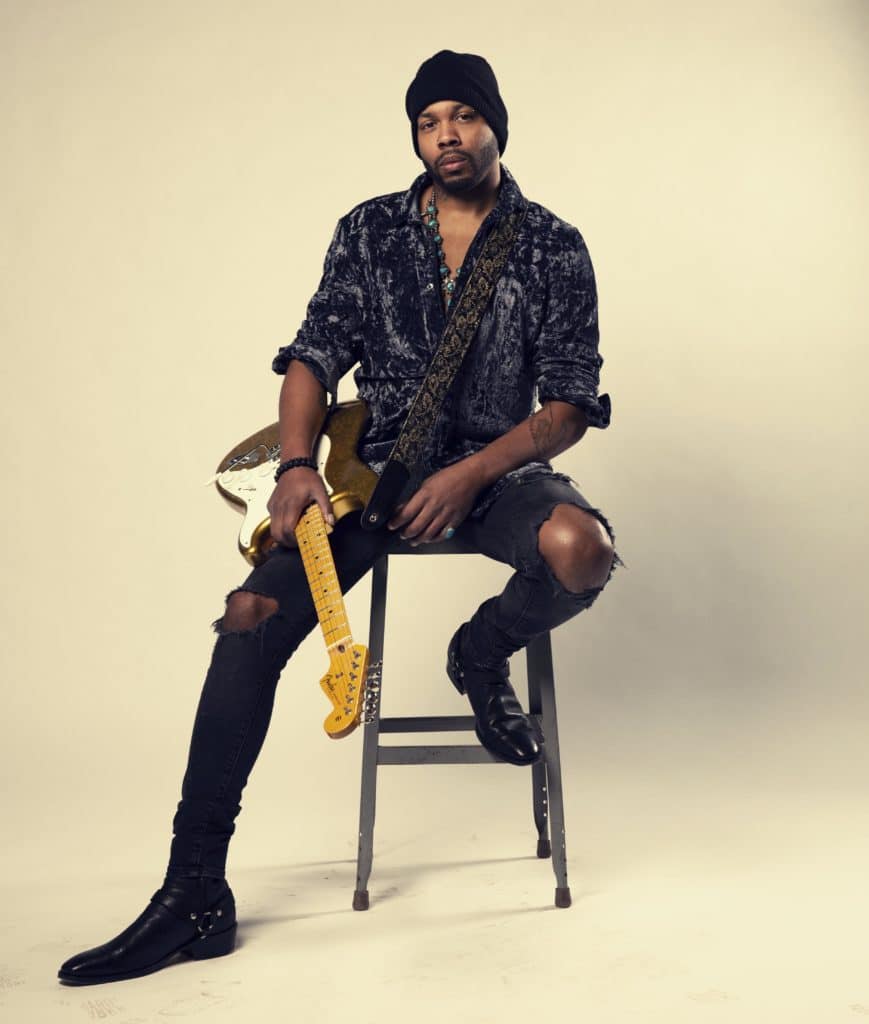
Do you have like, these kinds of areas that you want to explore next specific?
Ayron: Oh, yeah. I definitely want to bring more sounds, that are less obvious in my music to the forefront, like hip hop. Maybe some punkier sounds. I definitely want those sounds to be a little more prominent in my next record. I believe, this is the only way that we are going to bring attention back to the rock, at least in the States. Rock is pretty big in France and in Europe, there’s an audience that really appreciates it on a level of that is not as in the US. I think that my goal is to bring rock n’roll back to the masses, and, and in a way they can understand and consume.
You seem to try to go back to roots, musically and personally. To analyze who you are and how you became who you are. Do you think you’re going to become more political as well?
Ayron: Definitely! There are lots of band focusing on political views. What happened with Black Lives Matter changed the energy. It’s important to bring attention to those things, and make sure that people are aware of those things. But you got to kind of catch people from their state of consciousness. What we’re dealing with as human beings, as these mammals, that exists on this planet is that each of us are a different state of evolution of consciousness, some of us are more advanced, and some of us are less advanced. In order to bring people to your awareness, you have to catch them at their level. I don’t want to be known as an activist because that’s not my purpose in life. And not to say that those aren’t a part of the, the whole movement itself, that’s really important. My job is to infiltrate people’s consciousness through my music, and to allow them the opportunity to come their own conclusions. Just by getting to know me and my music. That’s going to be my purpose. I’m gonna draw attention to and speak about the things I’ve been through as a black American in the Western world. I think that’s really hard perspective to see, when you’re, you’re the minority, it’s hard to bring people into perspective. If I know anything about music, it’s that music has the opportunity to cross boundaries and across lines. And I’m going to continue to do that through rock n’roll for sure and bring people into my consciousness.
And how did recent events in America affect you?
Ayron: It’s been a very emotional time to say the least. Those are things that just exists, and you just conform to them. You can fight against them all you want, but the truth at the end of the day, is that you don’t have the power to change those things on your own. It takes a minority group reaching out to a part of the majority, in order for things to really make progress and change. Being black American, and like, silently doing these things for as long as I have. And then for them to be openly spoken about. It makes you very emotional, because you forget how hard that is for you as just as a human being. It was definitely tough, but I felt like it was my duty as an artist to continue to bring attention to it.
You managed to create quite a unique sound on your record. You tried and succeeded in conveying various strong emotions with your voice. How did you experiment all of that to achieve the final versions on the record?
Ayron: I always had this kind of way about my singing. I can emulate almost any sound I can sing almost any way. And I think for me, it was about just conveying the emotion that was coming to the song itself. I’m working with some co-writes on this so that some of the writers came from different backgrounds. The song “Takes Me Away” is raw and emotional, I was channeling more of a Rage Against the Machine. “My Love Remains” is definitely more of like an R&B track. I was channeling Jimi Hendrix. “Mercy” is more Michael Jackson; I was always trying to channel notions that came with the songs and like paying respects and homage to the songwriters. And that helped me write it too.
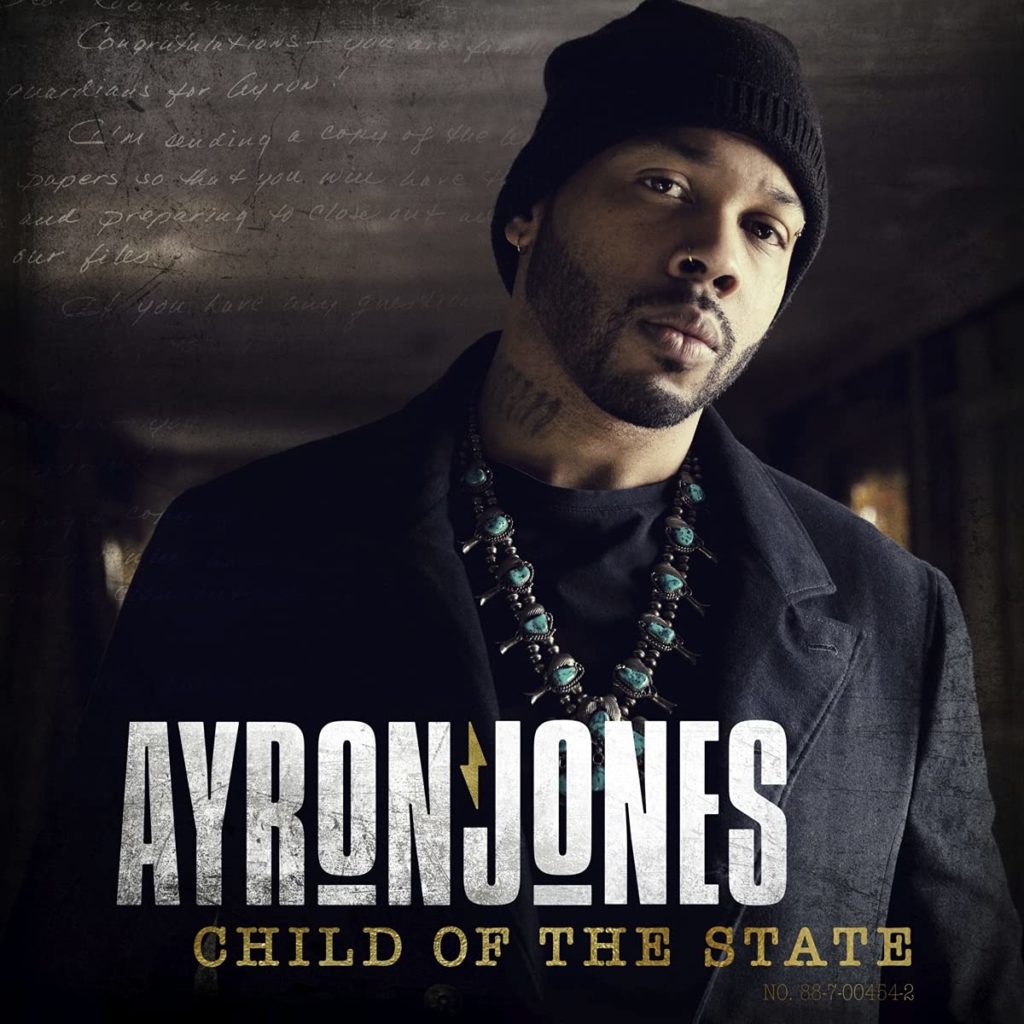
You managed to do all that while letting your music breathe. You were successful in not doing too much and going over the top?
Ayron: No, it’s not a lot of stuff at one time. It was done in a subtle way. It was almost like ambience versus something that was so in your face. I always liked a lot of space at my music. I think that the real goal of rock n’roll was to have a lot of space. In my eyes the texture does speak for itself and there is a lot of texture in the music. You never feel like there was too many notes. It’s like you said, the need to le let the music breathe. Let it be almost like poetry. Simplicity always is my philosophy.
So, do you get to see the sun sometimes? What makes Seattle so particular other than the bad weather?
Ayron: I think it’s isolation. Seattle is such isolated region in the US and probably in the world. The weather definitely plays a part in how you feel like that much affects you no matter what emotionally, but I think the isolation just being in such an isolated part, regionally, us the closest thing that we have to a media center is like San Francisco, but even then, it’s probably L.A.. L.A. is probably the biggest media center we have on the West Coast. And we’re so far away from that. You just don’t go there. That isolation I think, is what bred the music that comes from there. Listen, close to the grunge and run is actually isn’t just punk and heavy rock or heavy metal grind is actually like a kind of huge blue influence to lose influence, our B influence, it’s got a lot of things that you wouldn’t necessarily think of. When you think about grunge, things are always omnipresent in that music. I think it was because the isolation that Jimi Hendrix get the true spirit of Seattle. Seattle is actually jazz and soul blues. That’s had a huge influence on the sounds that came from Seattle for sure.
To conclude, we are RockUrLife so what rocks your life, Ayron?
Ayron: People rock my life. I love people, that’s my biggest gift and probably my biggest flaw. I love people love people to death. And sometimes I overly love people to the point where maybe you’re too close to people, I shouldn’t get close to you. My love of people was what drives my career and it’s constantly made it so that I’m continually trying to give myself and my gift to other people. I’ve always said this is my motto. It’s like, I’ve been granted this gift by God to play guitar. And when I say God, like the universal presence necessarily like this being I’ve been gifted with the ability to play guitar and write and sing and understand this consciousness and music. And the best gifts that that anyone can receive are the ones that you can give to other people. And so, for me, this is this gift is always It’s my gift to give to you and to others. And so that’s a that’s what rocks mean, and its people I’m sure it’s gonna be great.
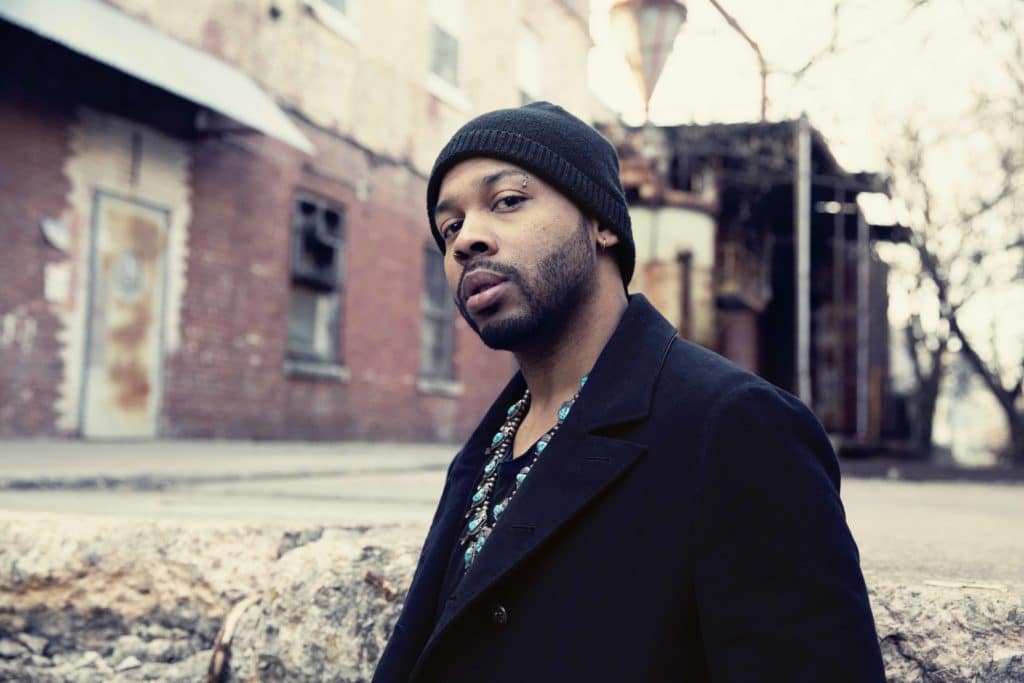
Website: ayronjonesmusic.com




